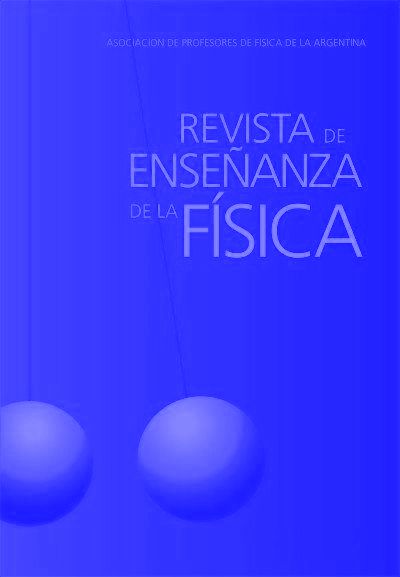Eureka in classrooms: from discovery learning to discover learning
DOI:
https://doi.org/10.55767/2451.6007.v36.n.47209Keywords:
Action-research, Discovery, LearningAbstract
This work describes an action research experience carried out by a group of teachers and students from the Physics Teaching Program of Salta. The initial objective was to analyze the effectiveness in classrooms of an experimental inquiry proposal aimed at the secondary level, centered on the discovery of the relationships of rotational equilibrium in a rigid body and Archimedes' principle. Students from the Practice III course of the Teaching Program participated in the prior design of the activities and their subsequent implementation in various educational institutions. This led to the process adopting a particular methodology that integrated work in secondary school classrooms with subsequent reflection in the Teaching Program classrooms. The experience provided multiple elements for analysis regarding the possibilities of implementing strategies that promote discovery learning in the teaching of physics and the advantages that such actions can offer to all actors involved in the experience.
References
Alessandretti, C., Mamaní Cáceres, Y., Martín, M., Vitulli, D. y Zerpa, Y. (2023). Física en chancletas: investigación en acción, en acción. Revista De Enseñanza De La Física, 35, 9–13. Recuperado de https://revistas.unc.edu.ar/index.php/revistaEF/article/view/43253
Barrón Ruiz, A. (1993). Aprendizaje por descubrimiento: Principios y aplicaciones inadecuadas. Revista Enseñanza de las ciencias, Capítulo Investigación y Experiencias Didácticas, 11(1), 3-11. Recuperado de https://es.slideshare.net/slideshow/aprendizaje-por-descubrmiento/47702516
Brunner, J. (1971). Cultura y desarrollo cognitivo. En La importancia de la educación (35-66). Barcelona: Ediciones Paidós.
Camargo Uribe, A. y Hederich Martínez, C. (2010). Jerome Brunner: Dos Teorías Cognitivas, dos formas de Significar, dos enfoques para la Enseñanza de la Ciencia. Psicogente, 13(24), 329-346. Recuperado de https://revistas.unisimon.edu.co/index.php/psicogente/article/view/1797/1713
Campanario, J. y Moya, A. (1999). ¿Cómo enseñar ciencias? Principales tendencias y propuestas. Revista Electrónica Enseñanza de las Ciencias, 17(2), 179-192. Recuperado de https://raco.cat/index.php/Ensenanza/article/view/21572/21406
Eleizalde, M., Parra, N., Palomino, C., Reyna, A. y Trujillo, I. (2010). Aprendizaje por descubrimiento y su eficacia en la enseñanza de la Biotecnología. Revista de Investigación, 34(71), 271-290. Recuperado de: https://www.redalyc.org/pdf/3761/376140386013.pdf
Furman, M. (2021). Enseñar Distinto. Buenos Aires: Siglo XXI.
Downloads
Published
Issue
Section
License

This work is licensed under a Creative Commons Attribution-NonCommercial-NoDerivatives 4.0 International License.
Aquellos autores/as que tengan publicaciones con esta revista, aceptan los términos siguientes:Los autores/as conservarán sus derechos de copiar y redistribuir el material, bajo los términos estipulados en la Licencia de reconocimiento, no comercial, sin obras derivadas de Creative Commons que permite a terceros compartir la obra bajo las siguientes condiciones:
- Reconocimiento — Debe reconocer adecuadamente la autoría, proporcionar un enlace a la licencia e indicar si se han realizado cambios. Puede hacerlo de cualquier manera razonable, pero no de una manera que sugiera que tiene el apoyo del licenciador o lo recibe por el uso que hace.
- NoComercial — No puede utilizar el material para una finalidad comercial.
- SinObraDerivada — Si remezcla, transforma o crea a partir del material, no puede difundir el material modificado.
- Los autores/as podrán adoptar otros acuerdos de licencia no exclusiva de distribución de la versión de la obra publicada (p. ej.: depositarla en un archivo telemático institucional o publicarla en un volumen monográfico) siempre que se indique la publicación inicial en esta revista.
- Se permite y recomienda a los autores/as difundir su obra a través de Internet (p. ej.: en archivos telemáticos institucionales o en su página web) antes y durante el proceso de envío, lo cual puede producir intercambios interesantes y aumentar las citas de la obra publicada. (Véase El efecto del acceso abierto).










